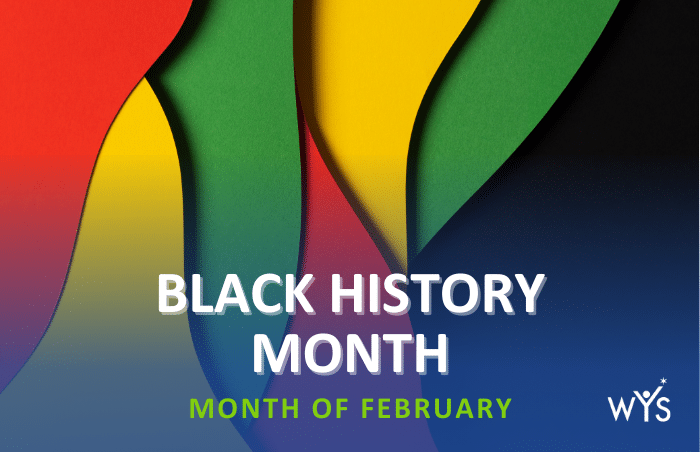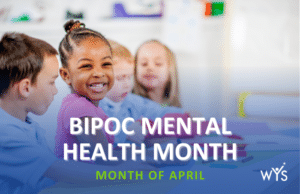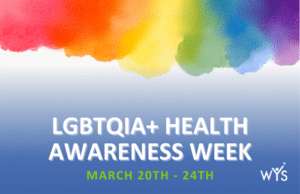
At Western Youth Services (WYS), diversity, equity, and inclusion (DEI) are fundamental principles that fuel both our work and our overall mission to support youth mental health and well-being. As we welcome February and recognize Black History Month, we are dedicated to honoring the historical accomplishments of Black individuals, celebrating their resilience, and fortifying our commitment to fostering diversity within organizations, communities, and mental health systems
The Origin of Black History Month
The Association for the Study of African American Life and History (ASALH) describes Black History Month as a month-long celebration focused on promoting, researching, preserving, interpreting, and sharing knowledge about Black life, history, and culture with the global community. It was first introduced in 1926 by historian Carter G. Woodson and the Association for the Study of Negro Life and History (ASNLH). President Gerald Ford officially recognized Black History Month in 1976, and people have commemorated it every February since.
This month serves as a time to reflect on the continuous fight for equality and recognize the profound contributions that Black leaders, inventors, advocates, and change-makers have made to society—many of whom have shaped the fields of mental health and community care.
The Importance of Black History Month and Youth Mental Health
Black History Month is a crucial reminder that while progress has been made, systemic disparities persist—especially in mental health. Our current society still faces a lack of inclusiveness, a gap in diversity, and systemic injustices. At WYS, we’re using this month as a chance to educate ourselves and others about the deep history and impactful contributions made by the Black community and to reflect on how disparities impact youth mental health.
Despite strides toward equity, Black youth continue to face disproportionate challenges that affect their emotional well-being. Research shows that Black youth are more likely to experience racial trauma, face systemic barriers to accessing care, and encounter stigma when seeking mental health support.
Consider the following statistics:
- Representation Matters: Black Americans make up about 13.6% of the U.S. population but remain underrepresented in leadership roles (U.S. Census Bureau, 2022). A lack of representation in mental health care can affect whether youth feel seen, understood, and supported.
- Educational Inequities: While the Black high school graduation rate has improved to 79%, systemic challenges in education continue to affect opportunities for academic and emotional success (National Center for Education Statistics, 2022).
- Mental Health Access Disparities: Only 1 in 4 Black adults received mental health services in 2021, compared to nearly 1 in 2 white adults (NIMH, 2021). This gap in care emphasizes the critical need for early intervention and prevention services tailored to Black youth.
These disparities are not just statistics—they represent real barriers that can have lifelong effects on young people’s emotional well-being. There is a greater need than ever to foster awareness and prioritize diversity within organizations, ensuring fair opportunities and culturally responsive support for all.
At WYS, we believe that providing culturally responsive care is a crucial step toward fostering resilience and ensuring all youth feel safe and supported.
DEI at Western Youth Services
Diversity, Equity, and Inclusion (DEI) at WYS are seen as more than just a part of our core values—they are the foundation of our mission. Our DEI initiatives help create a supportive and inclusive environment where youth, families, partners, and WYS team members feel valued, heard, and empowered.
Our We Welcome Diversity Promise is central to our work:
- ALL individuals valuing each other
- We seek to provide a safe and inclusive space for ALL
- We reject intolerance and any form of degradation or abuse of any kind
- We commit in words and actions, to uphold the rights of ALL to feel safe, valued, and respected
- WYS Welcomes ALL
To fulfill this promise, we prioritize DEI in the following ways:
- Cultural Competency Training: Providing ongoing training to our staff to ensure culturally sensitive practices in mental health services.
- Inclusive Hiring Practices: Striving for diverse representation within our organization to reflect the communities we serve.
- Community Outreach: Partnering with local organizations to address disparities and ensure access to resources for marginalized populations.
- Youth Empowerment Programs: Creating safe spaces for young people of all backgrounds to express themselves, develop leadership skills, and advocate for equality. Programs like our Super Resilient® Youth initiative equip youth with the tools they need to navigate adversity and thrive.
Why DEI Efforts Matter for Youth Mental Health
A lack of representation and inclusivity can contribute to feelings of isolation, anxiety, and lower self-esteem in youth. When we prioritize DEI, we help foster environments where young people feel valued and supported—building resilience that can last a lifetime. Black History Month serves as a reminder that our work to ensure fairness, access, and support is ongoing.
At WYS, we remain committed to expanding our DEI efforts because we know that every step we take toward equity strengthens our ability to provide impactful mental health support. We envision a future where every young person—regardless of background—has the opportunity to grow, thrive, and feel understood.
Ways to Get Involved
In honor of Black History Month, we encourage you to take steps to support mental health equity and celebrate diversity:
- Learn about Black mental health leaders and pioneers whose work has paved the way for progress.
- Support Black-owned businesses that give back to their communities.
- Advocate for inclusive mental health support within your schools and community spaces.
Together, even the smallest steps can make a meaningful difference.
You can find more information about Black History Month and how you can get involved, explore resources from ASALH and The Association for Black Psychologists.
By amplifying Black voices and fostering diversity, we can create a more inclusive and resilient future for our youth and communities.
If your child or a young loved one is struggling with a mental health concern, we encourage you to reach out to a mental health professional or to contact an Access Coordinator at Western Youth Services by sending an email to gethelp@westernyouthservices.org or by calling us toll-free at 888-312-0406.
You can find Orange County, state, and national resources on our site here: https://www.westernyouthservices.org/resources/.






